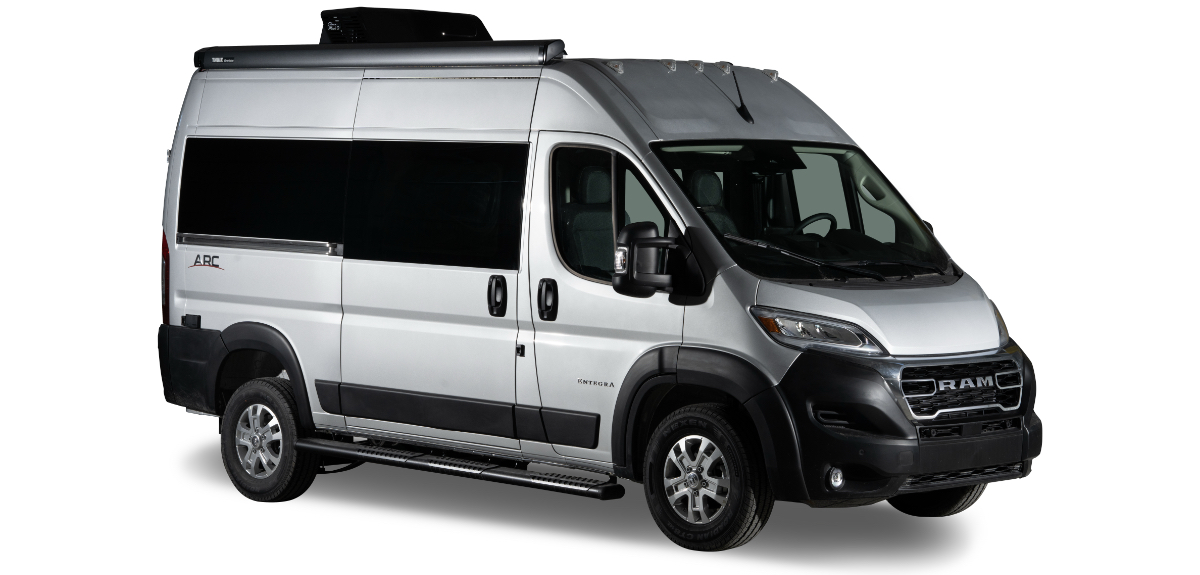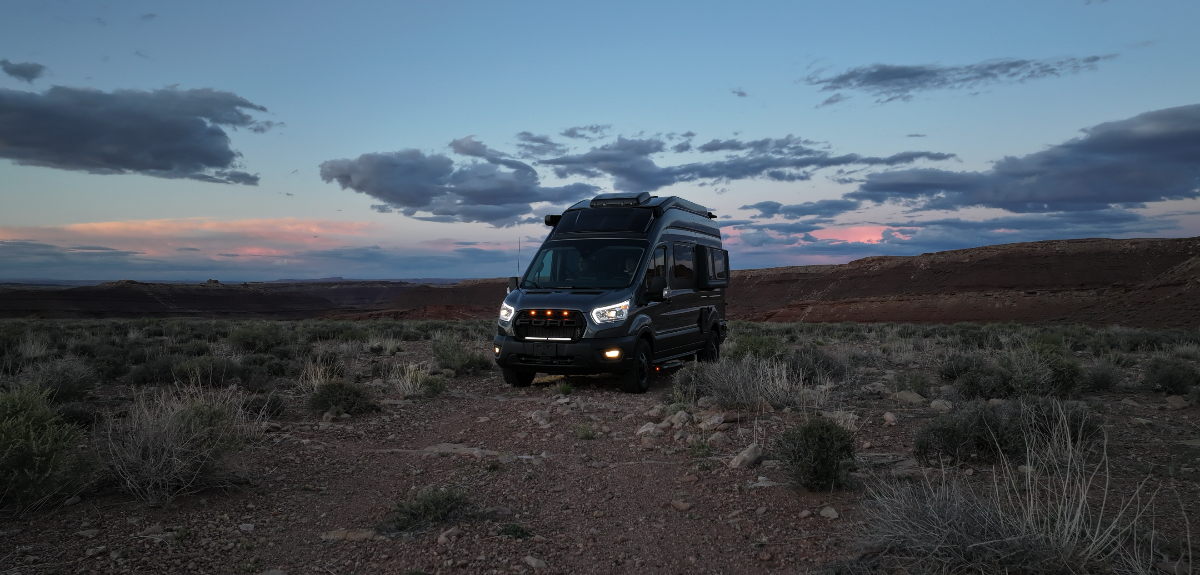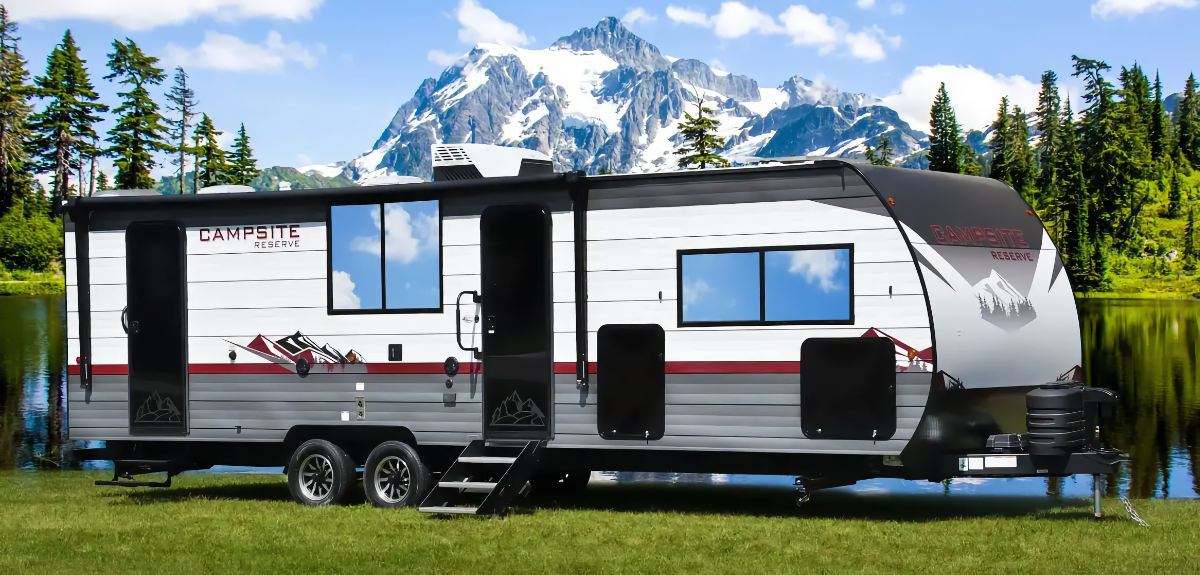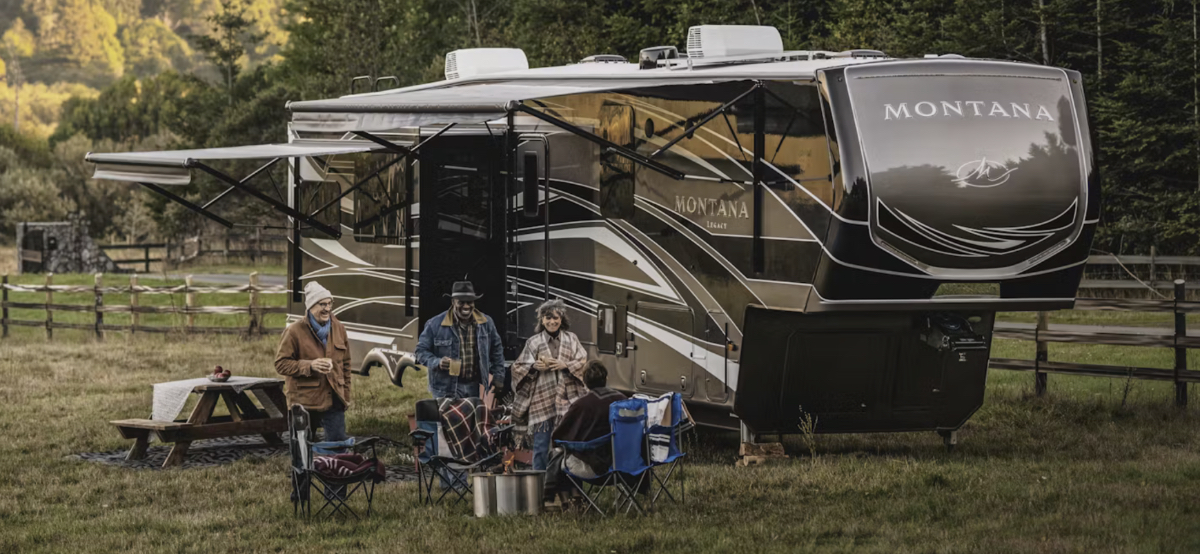California’s Gas-Powered Vehicles Ban Could Impact Class B RVs
New Regulations Could Prevent the Sale of Some Camper Vans by 2035
Image Caption: Image Courtesy of welcomia/Getty
On August 25, the state of California announced that it would ban the sale of most gas-powered vehicles by 2035. The plan is to slowly phase out new cars and trucks that use internal combustion engines (ICE) and replace them with more environmentally friendly models. Unsurprisingly, this shift in policy has raised questions with RVers concerned about the industry’s future. But as it turns out, most RVs are exempt from the new regulations for now, although one specific category may find itself in jeopardy.
With this initial prohibition on gas-powered engines, California is taking aim at cars, light-duty pickups, SUVs, and other vehicles that weigh less than 8,500 pounds. A ban on heavier vehicles—including medium- and heavy-duty trucks—is coming but won’t go into effect until 2045. The sale of RVs with ICEs will also likely be restricted at that time.
The exception to this rule could be Class B models that may be light enough to fall under the 8,500-pound threshold. Not many camper vans fit into that category, but those that do will likely disappear from the marketplace by 2035.
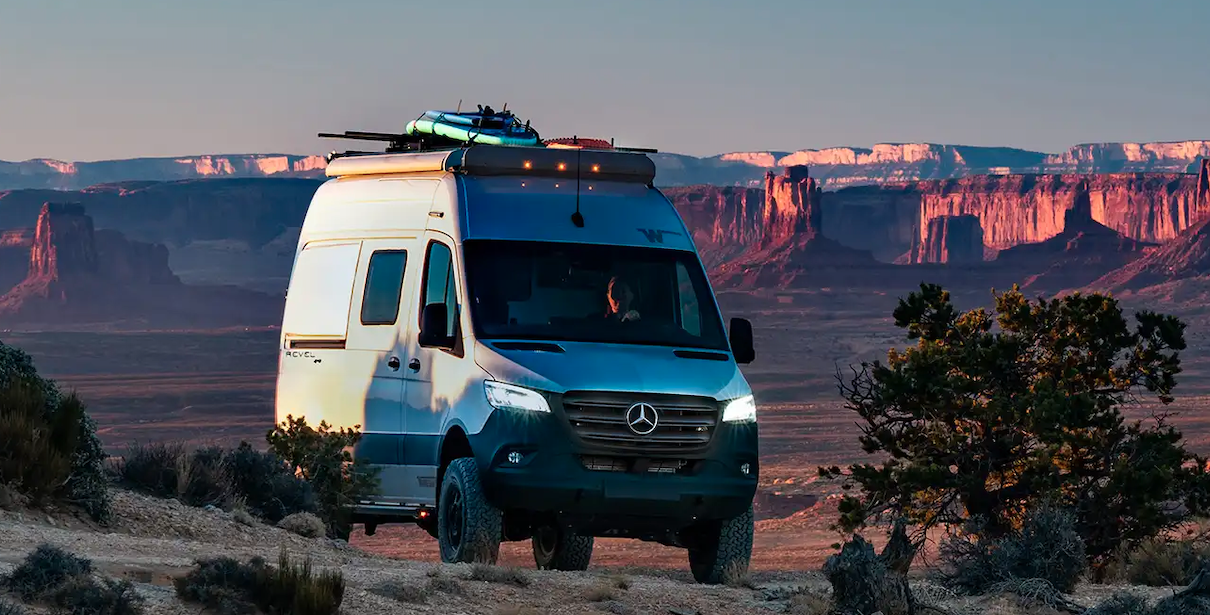
Image: Winnebago
It is important to point out that the ban is on the sale of new vehicles with internal combustion engines. California’s regulations don’t prohibit owning and driving those vehicles, which will continue to exist on the state’s roads and highways for decades to come. Still, legislators want to reduce harmful emissions as much as possible, and those efforts begin here.
California isn’t alone in its quest to do away with gas-burning vehicles. As of this writing, 17 other states plan to adopt the same regulations regarding the sale of ICEs. That list includes Colorado, Connecticut, Delaware, Maine, Maryland, Massachusetts, Minnesota, Nevada, New Jersey, New Mexico, New York, Oregon, Pennsylvania, Rhode Island, Vermont, Virginia, and Washington.
Fortunately, the first ban doesn’t go into effect for another 12 years, giving RV owners and manufacturers plenty of time to prepare. And with several high-profile electric models already in the prototype phase, it seems like it is only a matter of time before zero-emission motorhomes will be more common.

Kraig Becker is a writer in the RV, outdoors, and adventure travel space. Over the course of his career he has contributed to such outlets as Popular Mechanics, Outside Online, Business Insider, TripSavvy, Digital Trends, GearJunkie, The Adventure Blog, and countless others. And avid runner and cyclist, he enjoys camping, hiking, mountain biking, kayaking, and just about any other outdoor activity. His travels have taken him to seven continents and on many amazing adventures.

